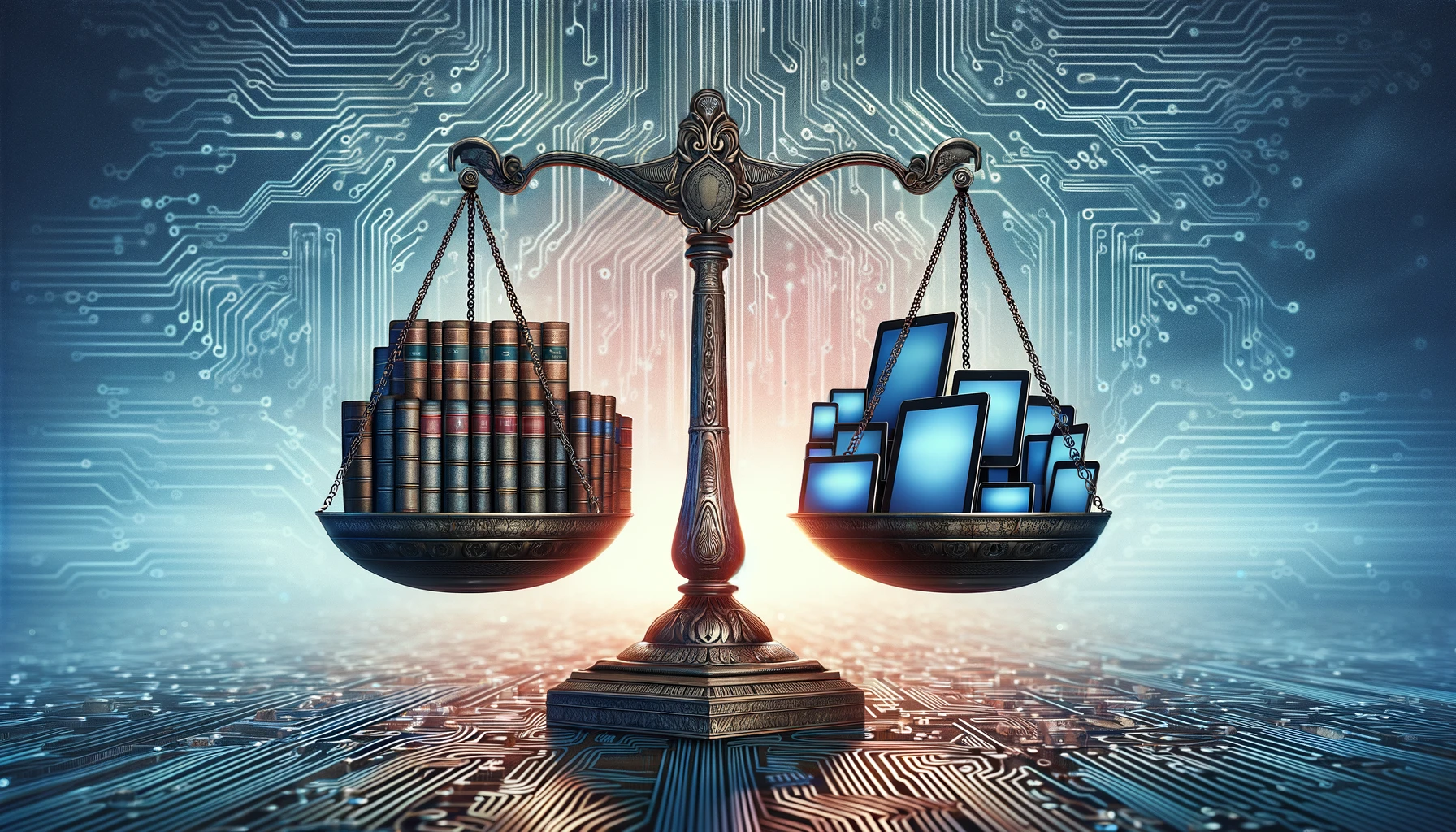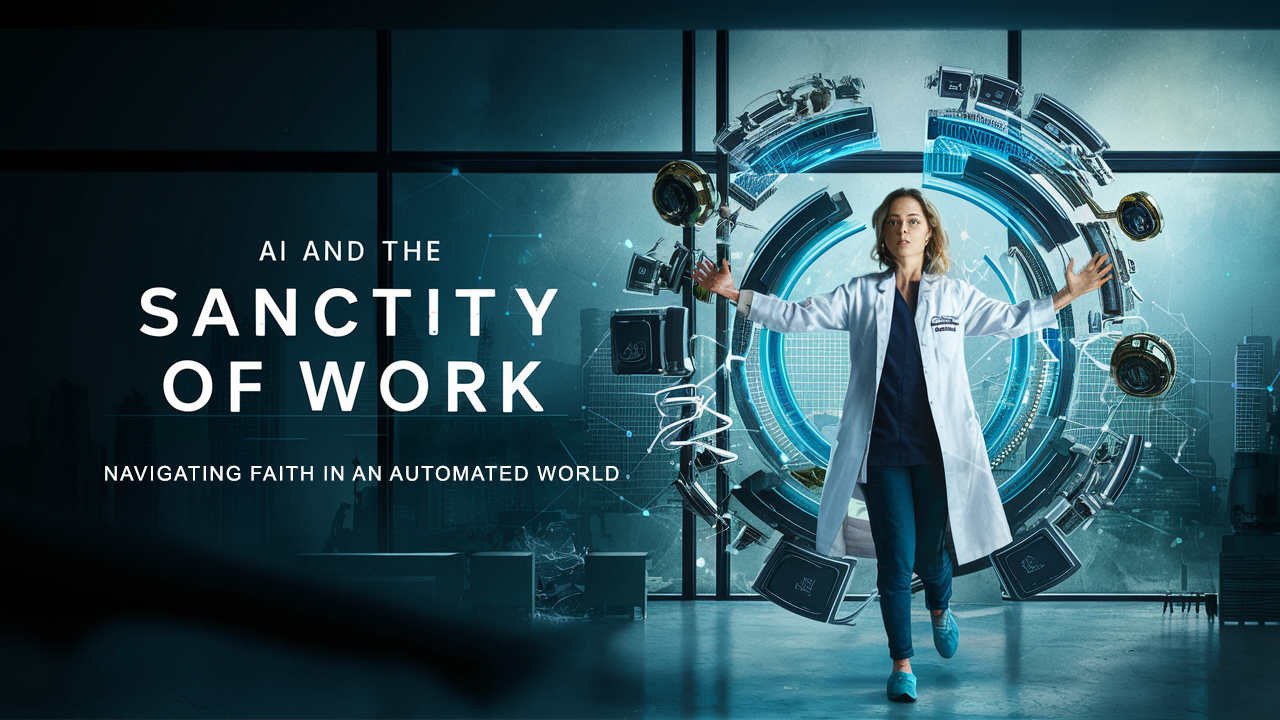Introduction
As we march forward into this brave new world that teems with the possibilities of artificial intelligence (AI), one might ask: A great deal, as it turns out. My journey as a software developer, coupled with my life as a devout Christian, has thoroughly convinced me that our engagement with technology must be permeated by our deepest convictions grounded in understanding the Gospel. For deeper exploration, see AI and Christian Ethics, Does the Bible Mention AI?, and What Does AI Say About God?. A properly fleshed out AI Ethics Framework is a necessity, required to navigate this technologically dense landscape without losing sight of our compass butScripture.
Framework 1: Imago Dei and Human Dignity
- Principle: Recognition of the Imago Dei in every human being.
- Scripture: "So God created man in his own image, in the image of God he created him; male and female he created them" (Genesis 1:27).
- Application: AI should be developed to recognize and uphold the innate dignity of every person, ensuring that technology respects and enhances human life rather than diminishing it. As such, AI must not contribute to the objectification or commodification of people.
- Implications: Developers are called to ensure their creations support human flourishing, providing assistive technologies that empower rather than suppress, and creating systems that protect privacy and prioritize consent.
Framework 2: Love Thy Neighbor

- Principle: The command to love and serve our neighbors.
- Scripture: "Love your neighbor as yourself" (Mark 12:31).
- Application: The development and deployment of AI must be steered by love – seeking the well-being of others, enabling community and connection, and operating with altruism. Such technologies should should bridge divides and serve community needs.
- Implications: This principle calls for inclusivity in AI design, ensuring technologies are accessible and equitable across socioeconomic lines. AI should build up society and address practical needs, providing solutions that serve humanity in diverse contexts.
Framework 3: Stewardship and Sustainability
- Principle: Responsible utilization and care for God’s creation.
- Scripture: "The earth is the Lord’s, and everything in it, the world, and all who live in it" (Psalm 24:1).
- Application: AI should aid in safeguarding our environment and managing resources responsibly. It must support sustainability efforts by optimizing consumption, reducing waste, and contributing to the overall health of our planet.
- Implications: As stewards, developers must leverage AI to combat environmental challenges, using intelligent systems in areas like climate modeling and resource management. Ethical considerations include the environmental impact of AI operations, aiming for carbon neutrality or even positive environmental contributions.
Framework 4: Justice for the Oppressed
- Principle: The Biblical call for justice, particularly for the marginalized.
- Scripture: "Learn to do right; seek justice. Defend the oppressed..." (Isaiah 1:17).
- Application: AI must be an instrument of equity, programmed to prevent biases and discrimination. It should be a tool that actively works towards social justice, whether through fair access to services or by exposing systemic inequalities.
- Implications: With an eye towards justice, developers should ensure that AI systems do instead address and correct them. In practice, this involves incorporating diverse datasets and perspectives, performing regular bias audits, and opening channels for redress when AI systems fall short.
Framework 5: Humility and the Limits of Technology
- Principle: Recognizing the limitations of human creations.
- Scripture: "Do not be wise in your own eyes; fear the Lord and shun evil" (Proverbs 3:7).
- Application: In AI development and application, a mindset of humility reminds us that technology has its limits. AI is a magnificent tool created by humans, but it is not infallible, nor does it possess the divine spark. A humble approach means acknowledging these limitations and programming caution into AI systems.
- Implications: Developers should avoid over-promising on AI capabilities, being transparent about what AI can and cannot do. There should be a focus on human oversight, enabling human intervention in high-stakes scenarios and ensuring AI supports rather than replaces human decision-making.
Framework 6: Transparency and Accountability

- Principle: Upholding honesty and responsibility in our actions.
- Scripture: "Therefore each of you must put off falsehood and speak truthfully to your neighbor, for we are all members of one body" (Ephesians 4:25).
- Application: AI should operate with clear transparency, providing users and affected parties with comprehensible explanations of its processes and decisions. Accountability structures must be in place to trace decisions back to the designers and developers for responsibility.
- Implications: This necessitates ethical coding practices, the inclusion of explanations within AI systems for end users, and clear channels for grievances when AI malfunctions or causes harm. Developers and companies must be prepared to address such issues ethically and swiftly.
Framework 7: Wisdom over Knowledge
- Principle: Valuing discernment and wisdom above mere data collection or knowledge accumulation.
- Scripture: "If any of you lacks wisdom, you should ask God, who gives generously to all without finding fault, and it will be given to you" (James 1:5).
- Application: While AI can amass vast amounts of data, it should be designed and operated in a manner that prioritizes wisdom and discernment. AI systems should complement human wisdom, enhancing decision-making rather than usurping it.
- Implications: This emphasizes the integration of AI within human contexts, supporting rather than overriding human expertise and ethical judgments. Designing for collaborative systems where human and AI strengths are synergized is key.
Framework 8: Preserving Human Agency
- Principle: Ensuring human freedom and decision-making capability.
- Scripture: "It is for freedom that Christ has set us free..." (Galatians 5:1).
- Application: AI should support and extend human abilities without replacing or constraining human choice and agency. It must be a tool for empowerment, not a means of control.
- Implications: When developing AI, careful consideration must be given to how systems support human decision-making without constraining choices. This involves designing interfaces and protocols that prioritize user control and autonomy.
Framework 9: Peace and Nonviolence
- Principle: Promoting peace and abstaining from violence. Learn more in Guiding Principles for AI and Faith..
- Scripture: "Blessed are the peacemakers, for they will be called children of God" (Matthew 5:9).
- Application: AI should be used as a means to promote peace and prevent conflict. AI technologies, especially in the sectors of security and defense, should be developed with a focus on de-escalation and nonviolence.
- Implications: This affects the development of AI in military and policing, demanding a commitment to peace and nonlethal outcomes. Developers must engage in rigorous ethical discernment when creating AI that might intersect with human conflict, ensuring that any involvement ultimately serves to preserve life and peace.
Framework 10: Redemption and Restoration

- Principle: AI should reflect the redemptive work of Christ.
- Scripture: "He who was seated on the throne said, 'I am making everything new!'" (Revelation 21:5).
- Application: In alignment with the redemptive narrative of Scripture, AI should participate in the restoration and healing of the brokenness in our world. This encompasses AI that aids in medical advancements, heals ecosystems, or rectifies historical injustices.
- Implications: This broader vision for AI calls developers to think beyond functionality and profit, to contemplate how their work can contribute to societal and environmental healing. It's a call to create AI that aligns with God's renewing work in the world.
Conclusion
Embarking on a discourse about AI from a Christian perspective serves as more than an academic exercise; it's a reflection of how we, as believers, engage with one of the most transformative aspects of our modern age. Each of the ten frameworks highlighted here stands as the intersection between our most profound beliefs and the ever-evolving world of technology. As we chart our course through this digital landscape, let us do so conscientiously, grounding our efforts in the bedrock of Scripture and the example of Christ.
We are reminded that our work with AI is of the spirit as well. It calls for reflection, discernment, and bold steps to ensure that our innovations also in their service to God's kingdom and the betterment of humanity. May we harness this powerful gift of artificial intelligence as diligent and faithful stewards, uplifting and nurturing the world that God so loves.
Reflections on Ethics and AI:
- Imago Dei and Human Dignity: AI should cherish and protect human dignity.
- Love Thy Neighbor: AI must be inclusive and serve all communities.
- Stewardship and Sustainability: AI should be a tool for caring for the Earth.
- Justice for the Oppressed: AI ought to be fair and equitable to all.
- Humility and the Limits of Technology: AI is not infallible and should complement human wisdom.
- Transparency and Accountability: AI must operate with integrity and ethical responsibility.
- Wisdom over Knowledge: AI should aid human decision-making rather than dominate it.
- Preserving Human Agency: AI must extend human abilities while upholding freedom.
- Peace and Nonviolence: AI should be a force for peace.
- Redemption and Restoration: AI has the potential to participate in God's redemptive work.
Real-World Case Studies: Where Ethics Failed

Amazon's Hiring Algorithm
- Problem: Trained on male-dominated tech team data
- Result: Systematically discriminated against women
- Lesson: Bias audit BEFORE deployment
Facebook's Recommendation Algorithm
- Problem: Optimized for engagement without ethical guardrails
- Result: Spread misinformation, polarized society
- Lesson: Profit motive ≠ ethical responsibility
Predictive Policing in Criminal Justice
- Problem: Encoded historical racism from arrest data
- Result: Created self-fulfilling prophecy of discrimination
- Lesson: Data source determines outcomes
Implementation Checklist: Is Your AI Ethical?
- Does this honor human dignity?
- Have we audited for bias?
- Who benefits? Who's harmed?
- Is this transparent to users?
- Can we be held accountable?
- Does this serve justice?
- Is this grounded in biblical values?
As we build and utilize AI, let us remember: "Whatever you do, work heartily, as for the Lord and not for men" (Colossians 3:23). In our striving to create, may our works reflect His glory.







